- Home
- Gordon Korman
Escape Page 7
Escape Read online
Page 7
J.J.’s face fell the distance between speaking to home and actually going there. “Okay, where’s the phone?”
Naslund hustled him out into the hangar where a Mercedes stood waiting. “Your daddy’s probably got half the FBI tracing this call. We’re going to take a ride to a special phone.”
They tied a burlap sack over J.J.’s head and pushed him to the floor in the back of the car.
J.J. guessed that it was mostly highway driving at first, but then the Mercedes entered what must have been a city. There were frequent stops, and he could make out horns and motorcycle engines all around.
He heard Mr. Big’s voice: “There’s a cop on horseback. Sit the kid up.”
So the sack was ripped off his head, and he was plucked from the floor and squeezed onto the backseat between Naslund and Meaner. They were in the middle of a bustling Asian city — Hong Kong? Shanghai? Neon billboards with Chinese characters flashed everywhere. Hundreds of motor scooters threaded through the crush of vehicles. Just ahead, a mounted policeman was directing traffic. No sooner had J.J.’s eyes locked on the cop than he felt the muzzle of a gun pressed against his side.
“Don’t even think about it,” whispered Naslund.
J.J. stared straight ahead, his blood chilled to freezing. They passed the officer close enough to reach out a hand and touch his boot.
As soon as the policeman was out of sight, on went the hood, and J.J. was back on the floor.
* * *
There were a lot of stairs — forty-two, J.J. counted. Every landing seemed to have a different cooking smell. Weeks on the island had gotten him used to the heat, but this was stifling.
When the burlap sack was finally pulled off, he was in a small seedy apartment crammed full of computer equipment and piles of books and manuals.
J.J. looked around for the phone, but Naslund sat him down in front of a computer that ran some kind of Internet long-distance calling program.
A young Chinese man with shoulder-length hair was expertly pounding the keyboard. He turned to Mr. Big. “It will be untraceable for two minutes.”
They heard a single ring and a quick pickup. “Jonathan Lane.”
It was all J.J. could do to keep from bursting into tears like a two-year-old. Since he’d last spoken to his father six weeks ago, the whole world had gone crazy. He’d been shipwrecked, marooned, and held at gunpoint. And here was this voice that came from a life before all that. It was a comfort and a torment at the same time.
“Hi, Dad.”
“J.J., you’re okay, right? They haven’t hurt you?”
“I’m fine,” he said shakily. “No, I’m not! You’ve got to get me out of this, Dad!”
“It’s being taken care of,” promised his father. “Just sit tight and stay calm.”
“Fast!” J.J. insisted, agonized that he couldn’t tell his father about the castaways still on the island. “You have to come quick! That’s the most important thing!”
His father’s voice was choked with emotion. “I know you’re scared, J.J. But for me this is happy! Three days ago I thought you were dead! To talk to you, hear your voice — you can’t know what it means to me — ”
J.J. was struck dumb. His father was crying! Jonathan Lane never cried, not even in the movies. He had instructed his agent never to consider a role that involved “blubbering.”
Mr. Big grabbed the microphone. “This is all very touching, but we have business. I assume you’ve got the money?”
“It’s ready.”
“Good. You get your plane fueled and sitting on the tarmac, and when the time comes, we’ll tell you where to fly.” He made a cutting motion across his throat. The longhaired man broke the connection.
Naslund let J.J. sit up in the car and look around on the drive back to the hangar. He even provided a bit of a guided tour. This was Taipei; there was downtown; the Grand Palace was on that hill; the haze was air pollution.
Air pollution. Smog. J.J. never thought he’d miss it. But after six long weeks, this was his first faint echo of his beloved L.A. In spite of himself, he couldn’t help but enjoy the action and feel of a busy, crowded city.
Idly, he wondered about the change of attitude among his captors. They’re in a good mood. They know they’ve got a big payday coming.
It made sense. On the way over, they couldn’t let him see his surroundings for fear that he might let slip something to his father. But now that the phone call was over …
He frowned. What was to stop him from giving up the smugglers once he was safe at home in California? He knew their location, their air-strip, and their secret island. He knew their faces and could testify against them and probably put them away for a thousand years.
How could they take that risk?
When the answer came to him, he realized that a part of him had always known it: He was never going to see California or his father again. When the smugglers had the ransom money in their hands, he was going to be killed.
Will Greenfield came awake into a world of pain and confusion. His leg was on fire.
What happened? Yeah, it hurt before, but not like this!
He sat up and practically passed out from the effort. Trickling moisture on his cheeks. He was crying! Sure, they’d all cried in the past few weeks — from terror, anger, hopelessness. Only a baby cried from pain. But it hurts so much!
He looked down. One entire leg of his fatigues was cut off, laying bare a thigh that looked like it had taken a direct hit from a cannonball. A square patch, crusty with dried blood, sat over the bullet wound at the center of a bright orange circle of iodine. Around that was an area of black-and-blue bruising that extended from knee to hip.
“Lyssa?” His voice was barely a rasp.
No answer.
“Lyssa!” He tried to drag himself to the flap of the sun canopy. Every inch of movement made his leg erupt with a searing agony. He had to bite on his sleeve to keep from screaming. Come on, you can do this. With a muffled moan, he crawled forward and peered outside. An amazing sight met his eyes. The beach was a beehive of activity. Nine stills worked side by side, boiling the salt out of seawater. Enormous stacks of fruit stood everywhere — coconuts, bananas, mangosteens, jackfruit, and durians, all waiting for — for what? The castaways could never eat that much stuff.
Speaking of eating, was he hungry? He thought so, but he could hardly feel his stomach over the explosion in his thigh.
Ian and Luke passed his line of vision, carrying something odd. It looked like a sort of blanket made out of army fatigues sewn together. And it was stretched between the two oars that came with the lifeboat.
How long have I been sleeping? What did I miss?
And then it hit him. That looked like — a sail!
“Lyssa! Lyss!”
This time the others came running. And when they found him awake and alert, the celebration was boisterous. He couldn’t get a word in edgewise. When he opened his mouth to ask what was going on, Lyssa stuck a thermometer in it. That was when Luke explained that Will had been out for the better part of a week, and during that time, the bullet in his leg had been surgically removed.
“Without asking me?” blurted Will, spitting the thermometer clear out of the lifeboat.
Lyssa retrieved it and brushed the sand off. “And it worked, Will! Your temperature is almost down to normal! We thought we’d killed you for sure!”
“It feels like you did,” Will gasped. “My leg, anyway. Why’d you have to do it?”
“This is better,” Ian insisted. “I know it hurts, but that infection could have been fatal.”
Will nodded slowly, struggling to think through the firestorm of pain.
“What’s with the” — he strained to point at the beach — “the fruit market? And that thing between the oars?”
Luke took a deep breath. “J.J. stowed away on the smugglers’ plane,” he said gravely. “We haven’t heard from him since.”
It was the one thought that could have drawn Wil
l’s mind off his leg. “Oh, my God, they killed him!”
Luke nodded grimly. “We think so. And we also think they probably interrogated him before they did it.”
“Which means they’re going to come after us,” Lyssa went on. “And this time there’s no place to hide. We’ve got to get away from here.”
“But not on the ocean!” Will protested, panting with the effort of his words. “Don’t you remember? We almost died out there!”
“But this time we’ll be prepared,” Charla insisted. “We’ve got the lifeboat, and we’re stocking up on food and water.”
“Come on,” groaned Will. “We’ll never carry enough water to get us across the whole ocean!”
“No,” agreed Ian. “But maybe the wind will take us into the shipping lanes or someplace where planes fly over, and we can be spotted. It’s a long shot, but it could be our only chance.”
“We can’t just wait here to be slaughtered,” added Lyssa.
Will lay back in torment and despair, staring up at the sun canopy. No, they shouldn’t sit around waiting for their own murders. But was the only alternative to go out and quite probably kill themselves?
The country music was louder than ever, and Meaner was in an especially foul mood. That morning his fellow guard, Mean, had failed to show up for work, leaving Meaner with a triple shift as J.J.’s jailer.
The actor’s son lay on his stomach on the hard concrete floor, his chin resting on folded arms. He had not set foot outside the storeroom since his guided tour of Taipei a day and a half before. He couldn’t remember the last time he’d slept.
They’re going to kill you. The thought was a heavy-duty wake-up call, a piercing alarm broadcast directly into his brain whenever drowsiness was about to get the better of him. If Dad paid up, the smugglers would shoot him the minute they had the money. But even if Dad held out, they’d eventually get wise and whack him anyway.
Better to stay awake, he told himself. Don’t sleep through any of the little time you’ve got left.
Even after the shipwreck and all those terrible weeks on the island, this was the first time J.J. had thought seriously about what death would feel like. Blackness. Nothingness. But just for him. That part was especially hard to accept. The rest of the world would go about its business. In California, there would be traffic and surfing and all-night Hollywood parties. On the island, his fellow castaways would continue to think about rescue. Even this lousy music would probably go on.
“Howdy, pardners!” enthused the DJ. A string of lightning-quick Chinese was followed by the word hoedown.
My last memory is going to be Boxcar Willy.
He stood up. “I’m changing the station.”
Meaner regarded him, a bored expression on his face.
J.J. headed for the radio. “I’m serious. There’s got to be some decent music around here.”
The guard barked something at him. His hand hovered over the gun in his belt.
J.J. swallowed hard and kept walking. A plan was taking shape in his mind.
He didn’t shoot me last time ….
Now the gun was out. The man yelled a steady stream of agitated Chinese that mingled with the DJ’s harangue to sound like a heated argument.
So long as he thinks I’m just a country music hater.
“Changing the station, got it? I’m changing the station.” J.J. reached for the dial.
Shouting, Meaner took a menacing step forward, and J.J. picked up the radio and swung it with all his might.
Smack! The portable made contact with Meaner’s hand. With a cry of pain, the guard dropped the gun, which skittered across the cement floor.
J.J. lunged for it. He knew speed was his only advantage in a fight with an adult. If Meaner ever got him in a wrestling match, he was doomed. His eyes were locked on the gun — only a few inches away! He reached for it, but Meaner hurled himself bodily into the way.
Wham! He hit the floor between J.J. and the weapon. There was a sick-sounding crack as the guard’s head struck the concrete.
J.J. sprang to his feet, but Meaner was unmoving. A trickle of blood trailed out of his ear to the floor.
J.J. picked up the weapon and stuck it in the waistband of his fatigues. He was free. But how was he ever going to get out of the hangar?
He eased the door open about an inch and peered through the gap. The building was deserted.
I couldn’t get this lucky.
He looked from every angle. The plane was parked, and the big hangar door was closed. But there was no sign of his captors, and he could hear no voices. All was quiet.
He took three tentative steps and then broke into a run. Where was the control that opened the hangar door? It was probably pretty obvious, but in his excited state he couldn’t locate it. Then he spotted a small emergency exit in the corner of the building. He sprinted for it.
Locked!
He fought with the knob, shaking with all his might. Cold panic. Anger too. He was so close! How could fate do this to him?
The gun. It came to him in a series of flashes from at least a dozen of his father’s movies. The cop/detective/secret agent shoots the lock to make his escape. But that was the movies. Would it work in real life?
There’s only one way to find out!
Hand shaking, he held the pistol about six inches from the doorknob and took careful aim. He had never fired a gun in his life. He was amazed at how hard it was to budge the trigger. But once it began to move, it was like a toboggan — accelerating, inevitable.
Three sounds came in such rapid succession that J.J. heard them all at once: the crack of the gun, a violent screech of splintering metal, and a yowl of pain. The recoil took the pistol clear out of J.J.’s hand. It clattered to the floor five feet behind him. The ruined exit door swung slowly open to reveal Naslund and Mr. Big. The Englishman was doubled over, clutching his side where the bullet had struck him. His shirt was stained with blood.
“You!” exclaimed Mr. Big.
Naslund reached out menacingly, but J.J. exploded through the doorway past him, convinced to the core of his being that the prize of this footrace would be his very life. The Englishman pursued until the pain in his side became too great and he pulled up short.
“Get the car!” he croaked.
His words sent ice water coursing through J.J.’s veins. J.J. pounded down the runway, footfalls resounding in his head like the beating of his heart. Fly! he exhorted himself. It was a moment of such crystal-clear purpose it was almost exhilarating: Speed equals escape — that simple law governed his entire universe. If it weren’t for the terror that held him in its grip, he might have been cheering himself on.
He wheeled off the runway onto a dirt road. All at once, his field of vision was filled with the front grille and headlights of a car — coming up fast!
There was no time to get out of the way. J.J. vaulted onto the hood and rolled. A split second before the windshield hurtled into him, he tumbled off the car, landing in a heap in light underbrush.
The squeal of tires. “Freeze! Hands on your head!”
J.J. didn’t respond to the command. There were no moves left in him. Instead, he steeled himself for the impact of the bullets that would end this crazy ride.
“Geez, don’t shoot!” shouted another voice. “It’s him! It’s Lane’s kid!”
That was when J.J. took note of the vehicle that had almost obliterated him. It was a police cruiser.
“Row!” bellowed Luke.
He and Charla splashed through the waist-deep surf, pushing the loaded lifeboat out to sea. On board, Ian and Lyssa heaved at the oars, propelling the covered raft into the oncoming breakers.
The tide was going out, but the seas were rougher than usual. Every time they made any progress, a powerful wave would take hold of the craft and send it careening back toward the island.
Will’s cries of pain resounded from the raft. With the wild pitching of the sea, it was impossible to keep his injured leg immobilized.
“We’re hurting him!” shouted Lyssa, her voice barely audible over the pounding of the surf. “Let’s try again when the ocean calms down!”
“No!” exclaimed Ian. “We make our move when we’ve got the tide!”
A breaker hit Luke in the face. He came up sputtering. He would have been overjoyed to postpone their departure until conditions were better. But the smugglers could already be on their way back to the island. Waiting an extra day might well be fatal.
“I hate this place!” raged Charla. “Getting here almost killed us and getting away is going to finish the job!”
Suddenly, the raft was in the grasp of a monster swell. For a breathless few seconds, it teetered on the crest, looming over Luke, threatening to come down and crush him. He was frozen, powerless to move, staring up at the terrified face of Will, who stared back at him through the flap of the sun canopy.
After all I’ve survived, Luke thought ruefully, I’m going to be drowned by my own lifeboat!
His eyes searched out the telltale foam that meant the wave was about to break. It never came. Instead, the raft bobbed up to the top of the swell and disappeared down the other side. The moving mountain of water rolled over Luke and Charla, driving them under.
Luke floundered, kicking for the light. When he surfaced, choking and spitting, he looked desperately around for the lifeboat.
Charla pointed. “Out there!”
Luke stared. In only a handful of seconds, the raft was forty feet away. Now free of the incoming surf, it was being pulled out to sea by a relentless undertow.
The rowers, Lyssa and Ian, were paddling like mad to slow things down. Their efforts had no effect at all on the drag of the ocean.
“Swim for it!” called Luke, launching himself through the waves.
Charla took off, cutting the water like a cabin cruiser. Her powerful arms churning, she passed Luke and bore down on the raft.
Still swimming, he saw her heave herself up over the side. It was only then that he realized how very far the boat still was, and how tired and heavy his arms and legs felt. An overwhelming isolation gripped him. If he couldn’t reach the raft, he’d have to swim back to shore. Then he’d be marooned alone.

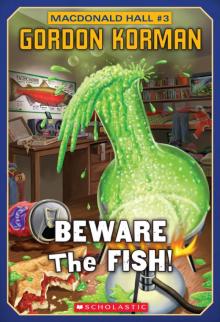 Beware the Fisj
Beware the Fisj Slacker
Slacker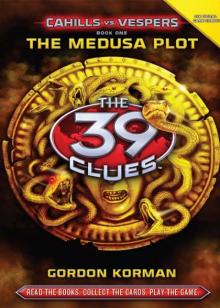 The Medusa Plot
The Medusa Plot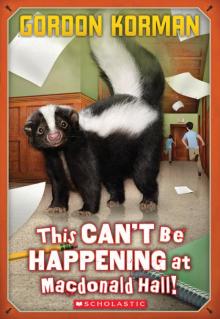 This Can't Be Happening at MacDonald Hall!
This Can't Be Happening at MacDonald Hall!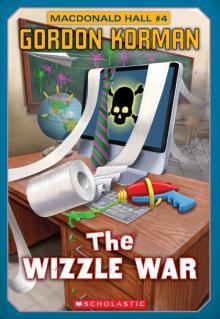 The War With Mr. Wizzle
The War With Mr. Wizzle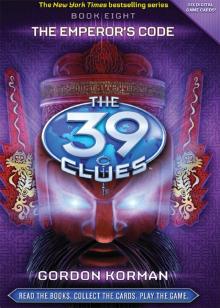 The Emperor's Code
The Emperor's Code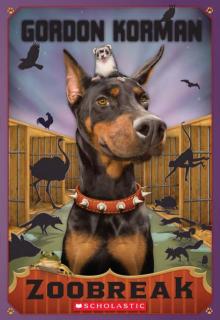 Zoobreak
Zoobreak The Danger
The Danger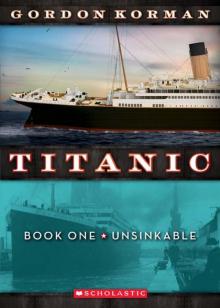 Unsinkable
Unsinkable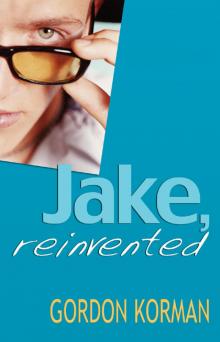 Jake, Reinvented
Jake, Reinvented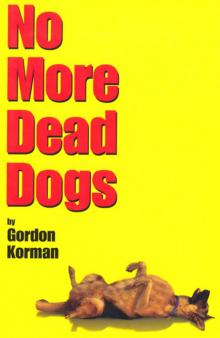 No More Dead Dogs
No More Dead Dogs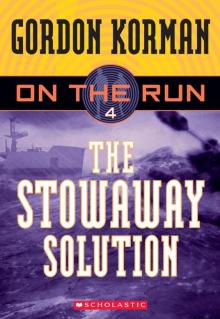 The Stowaway Solution
The Stowaway Solution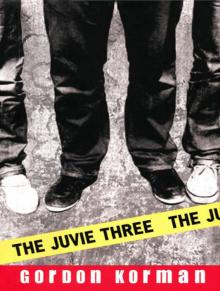 The Juvie Three
The Juvie Three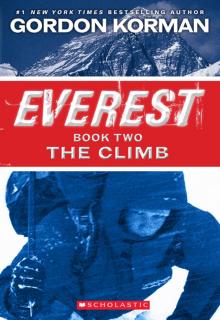 The Climb
The Climb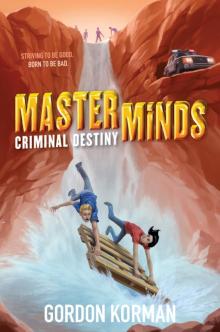 Criminal Destiny
Criminal Destiny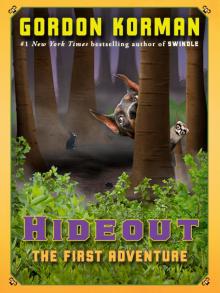 Hideout: The First Adventure
Hideout: The First Adventure Flashpoint
Flashpoint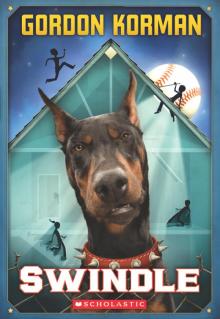 Swindle
Swindle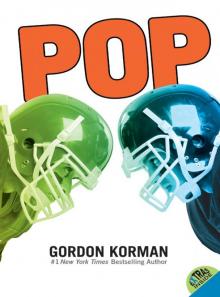 Pop
Pop The Rescue
The Rescue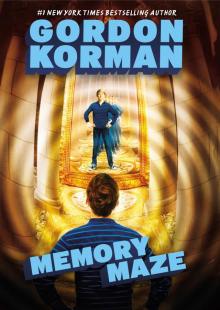 Memory Maze
Memory Maze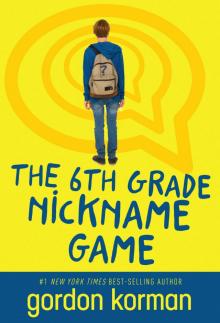 The Sixth Grade Nickname Game
The Sixth Grade Nickname Game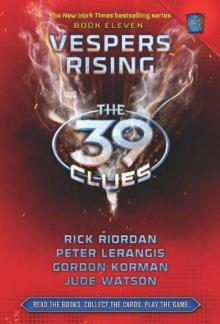 Vespers Rising
Vespers Rising Collision Course
Collision Course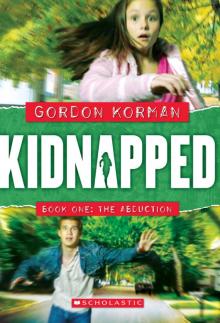 The Abduction
The Abduction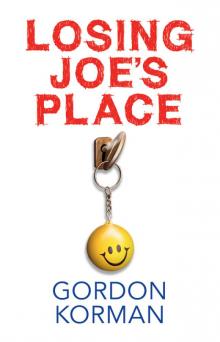 Losing Joe's Place
Losing Joe's Place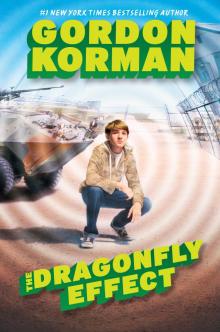 The Dragonfly Effect
The Dragonfly Effect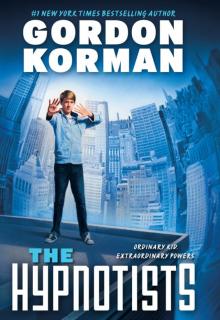 The Hypnotists
The Hypnotists Survival
Survival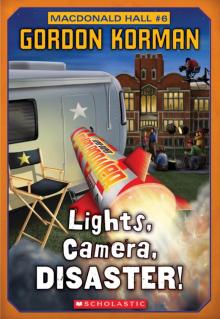 Lights, Camera, DISASTER!
Lights, Camera, DISASTER! Payback
Payback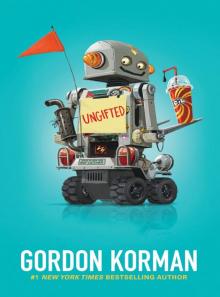 Ungifted
Ungifted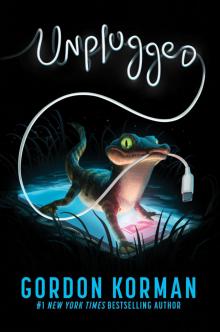 Unplugged
Unplugged Framed
Framed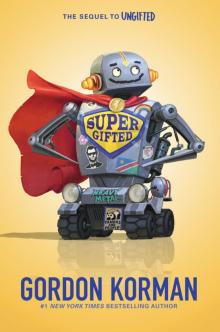 Supergifted
Supergifted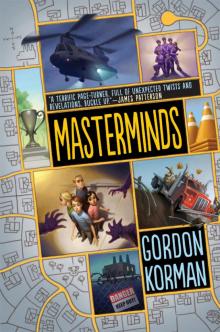 Masterminds
Masterminds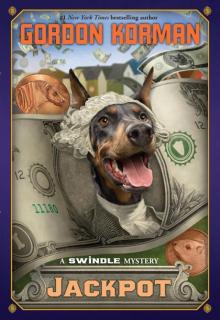 Jackpot
Jackpot Don't Care High
Don't Care High The Deep
The Deep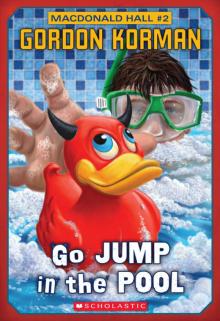 Go Jump in the Pool!
Go Jump in the Pool! The Contest
The Contest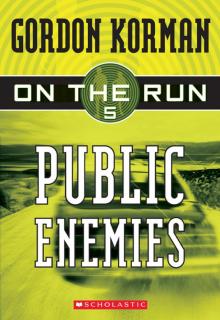 Public Enemies
Public Enemies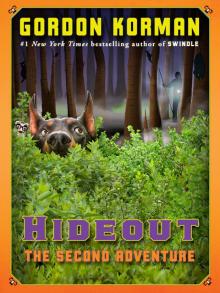 Hideout: The Second Adventure
Hideout: The Second Adventure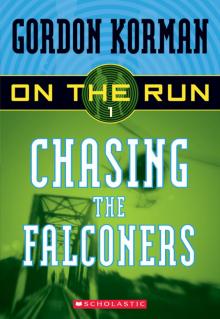 Chasing the Falconers
Chasing the Falconers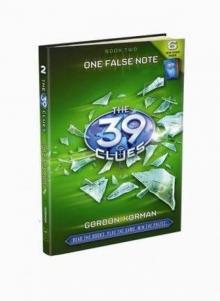 One False Note
One False Note Shipwreck
Shipwreck Jingle
Jingle Unleashed
Unleashed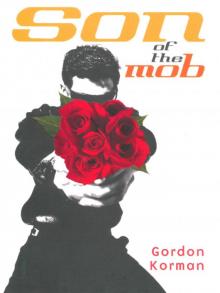 Son of the Mob
Son of the Mob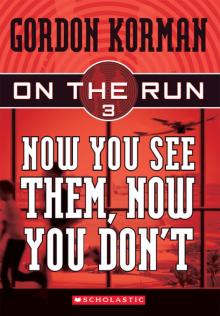 Now You See Them, Now You Don't
Now You See Them, Now You Don't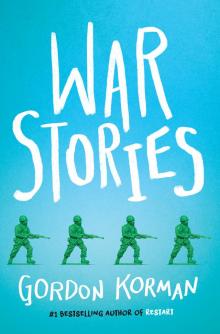 War Stories
War Stories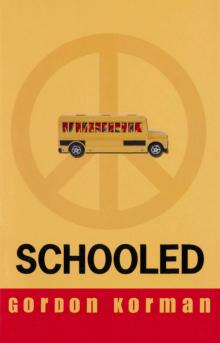 Schooled
Schooled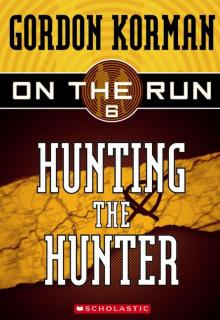 Hunting the Hunter
Hunting the Hunter The Zucchini Warriors
The Zucchini Warriors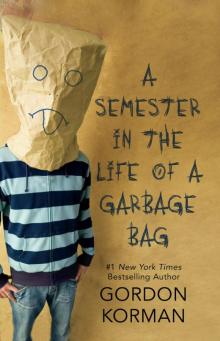 A Semester in the Life of a Garbage Bag
A Semester in the Life of a Garbage Bag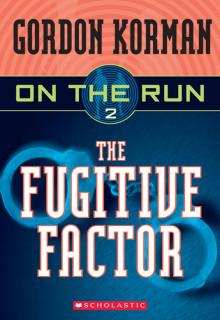 The Fugitive Factor
The Fugitive Factor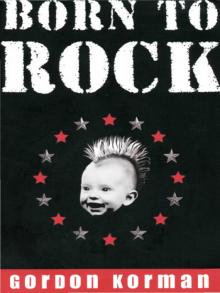 Born to Rock
Born to Rock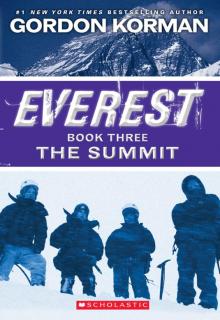 The Summit
The Summit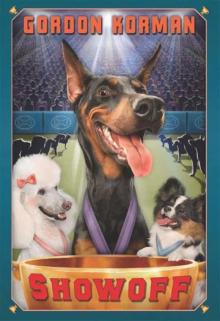 Showoff
Showoff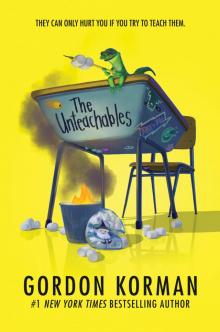 The Unteachables
The Unteachables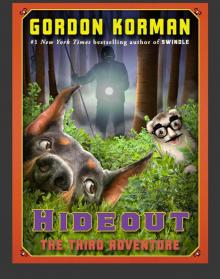 The Third Adventure
The Third Adventure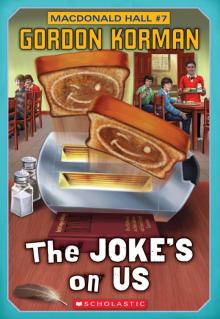 The Joke's on Us
The Joke's on Us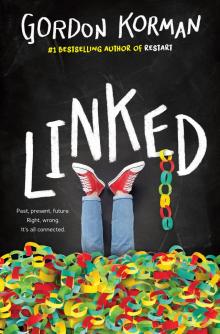 Linked
Linked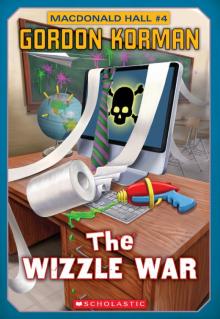 The Wizzle War
The Wizzle War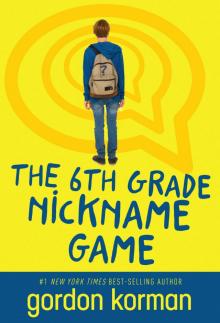 The 6th Grade Nickname Game
The 6th Grade Nickname Game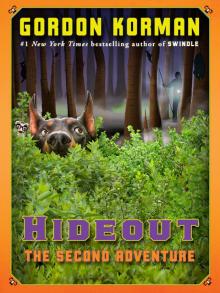 The Second Adventure
The Second Adventure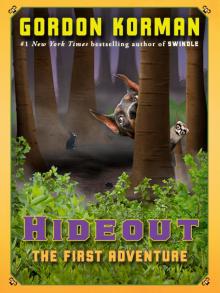 The First Adventure
The First Adventure![39 Clues : Cahills vs. Vespers [01] The Medusa Plot Read online](http://i1.bookreadfree.com/i2/04/10/39_clues_cahills_vs_vespers_01_the_medusa_plot_preview.jpg) 39 Clues : Cahills vs. Vespers [01] The Medusa Plot
39 Clues : Cahills vs. Vespers [01] The Medusa Plot